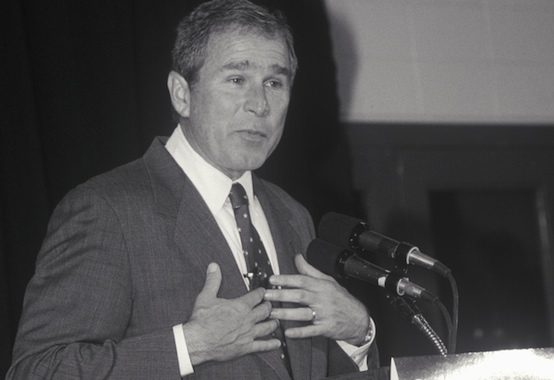The ‘Council of Historical Advisers’ Is a Terrible Idea

Niall Ferguson and Graham Allison want a presidential council of historians that will exist to commit professional malpractice:
Mainstream historians take an event, phenomenon, or era and attempt to explain what happened. They sometimes say that they study the past “for its own sake.” Applied historians would take a current predicament and try to identify analogues in the past [bold mine-DL].
Presidents would benefit from their own careful study of history, and it would be useful for them to consult with professional historians to acquire some wider perspective on a contemporary problem, but Ferguson and Allison are proposing something very different. Few things are less productive or potentially more misleading than to have historians go on an analogy hunt to influence a contemporary policy decision. For one thing, drawing an analogy between a current event and another time and place under very different circumstances is just as likely to corrupt as it is to improve understanding of a subject. And if an analogy to something in the past is likely to mislead, the way the analogy is interpreted can do additional harm. At its worst, trying to “identify analogues in the past” is just an excuse to shoehorn a contemporary problem into an inappropriate model to deliver a predetermined conclusion, or it invites ideologues to impose their policy preferences while pretending to be offering impartial analysis. Considering how eager some historian-pundits are to liken each new crisis to Munich and how often we get pseudo-learned claims about how we’re living through a new Thirty Years’ War, the last thing we need is a group of formal appointees tasked with the job of finding historical analogies.
Gene Healy makes related points in his criticism of the “applied history” approach, and focuses specifically on what Ferguson and Allison were saying about invading Iraq before the war started:
If they’d had the president’s ear at the time, he’d have gotten extra doses of alarmism and delusions of grandeur, pathologies that weren’t exactly in short supply in the Bush White House.
Healy goes on to remind us that Bush was counseled by no less than Bernard Lewis, whose own foreign policy views were just as irresponsible and reckless as the president’s. Bush obviously didn’t benefit from Lewis’ erudition, but he was presumably encouraged by Lewis’ support for aggressive policies in the region. It would have been ideal if Bush had listened to the many other historians and regional specialists that warned against an invasion, but we know that their expertise was dismissed out of hand because it didn’t line up with the policies that Bush and his officials wanted to implement. As with other “official” historians, this council would end up buttressing the president’s existing worldview, flattering him with comparisons to great leaders of the past, and doing little or nothing to keep him from making colossal errors. In the worst-case scenario, the council could have a truly harmful effect of encouraging a president to “do something” in response to a foreign event that he would be better off leaving alone.
Comments